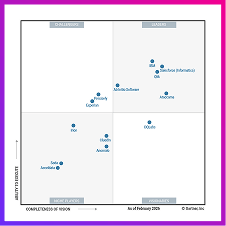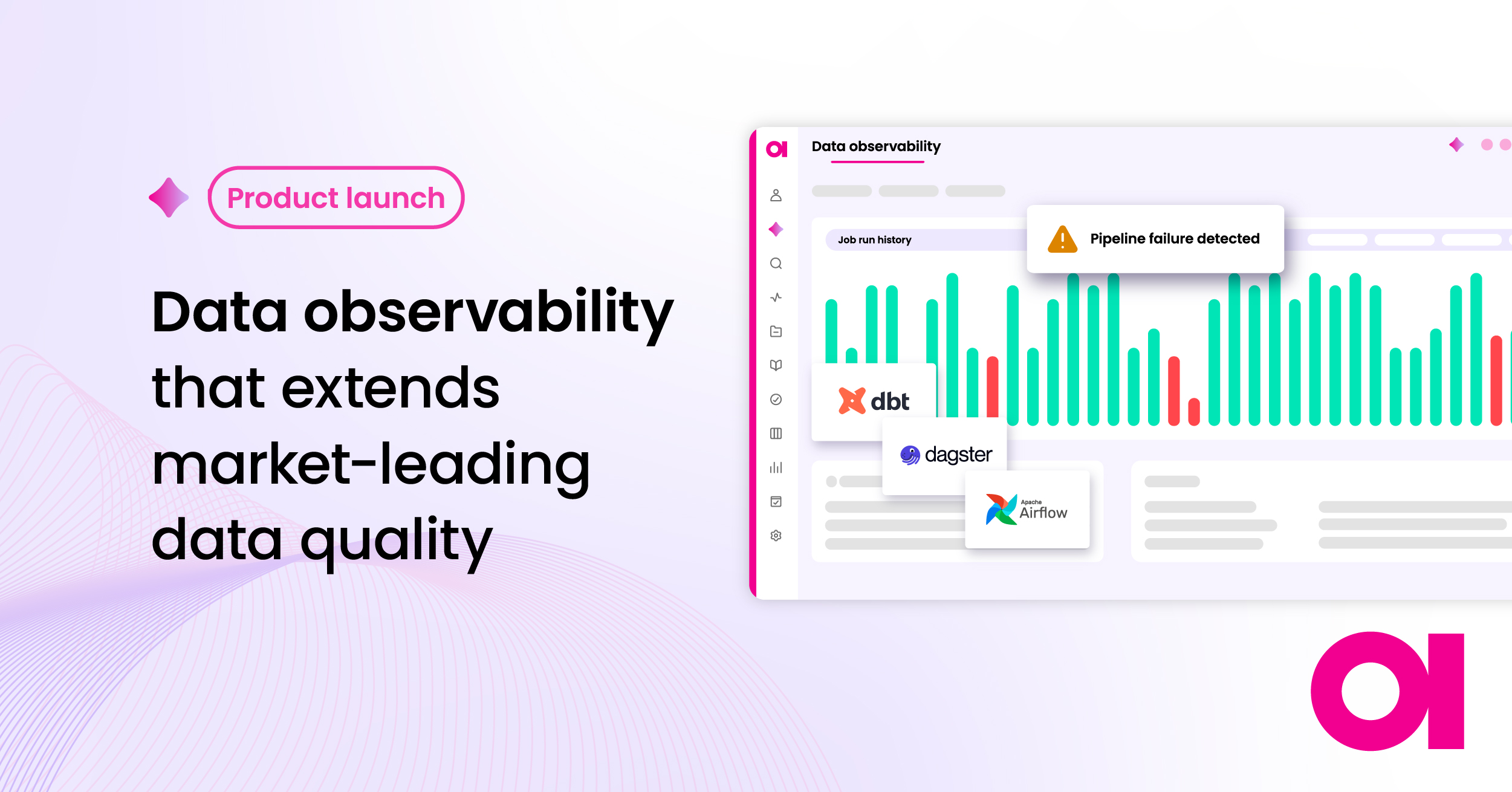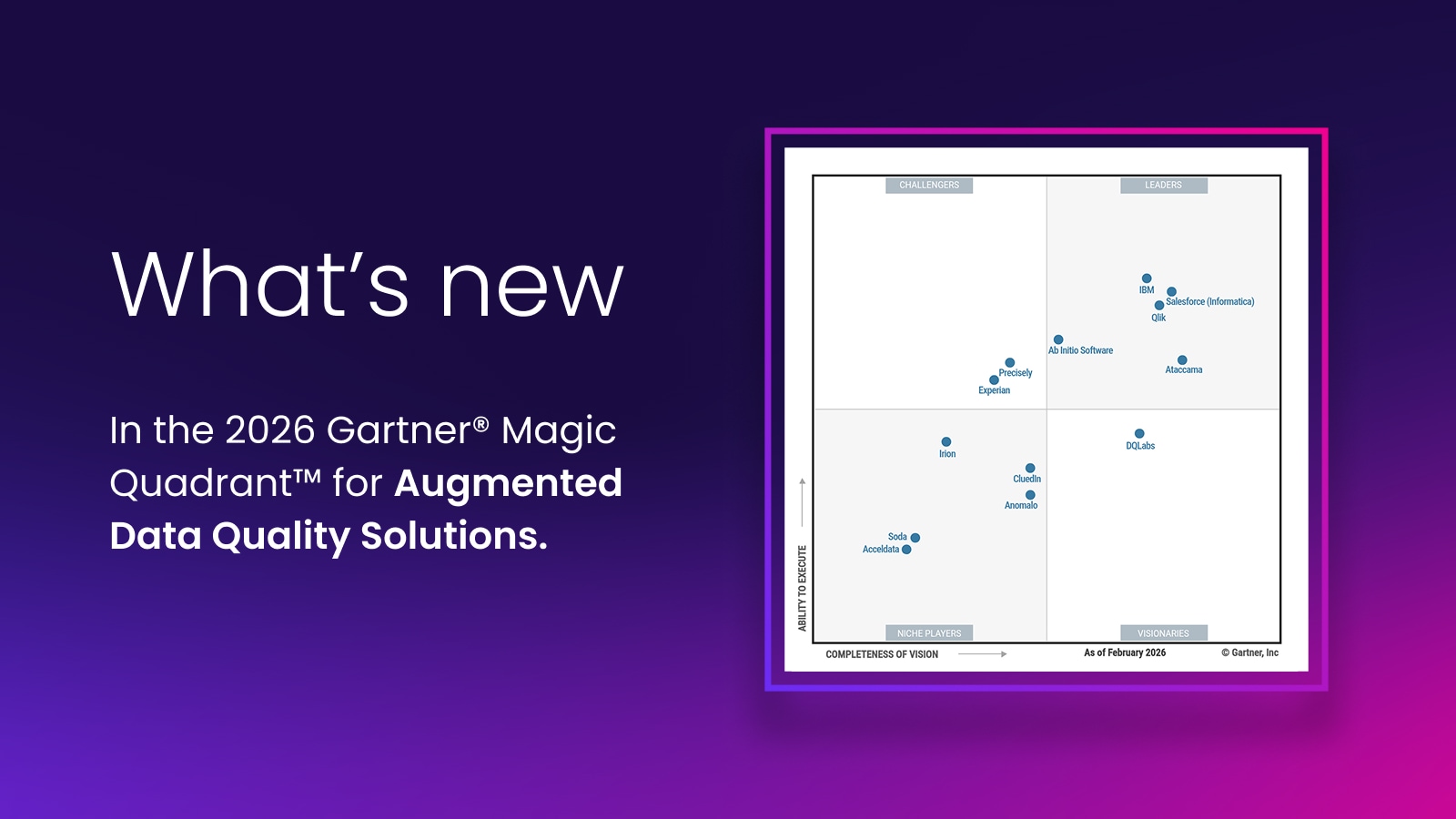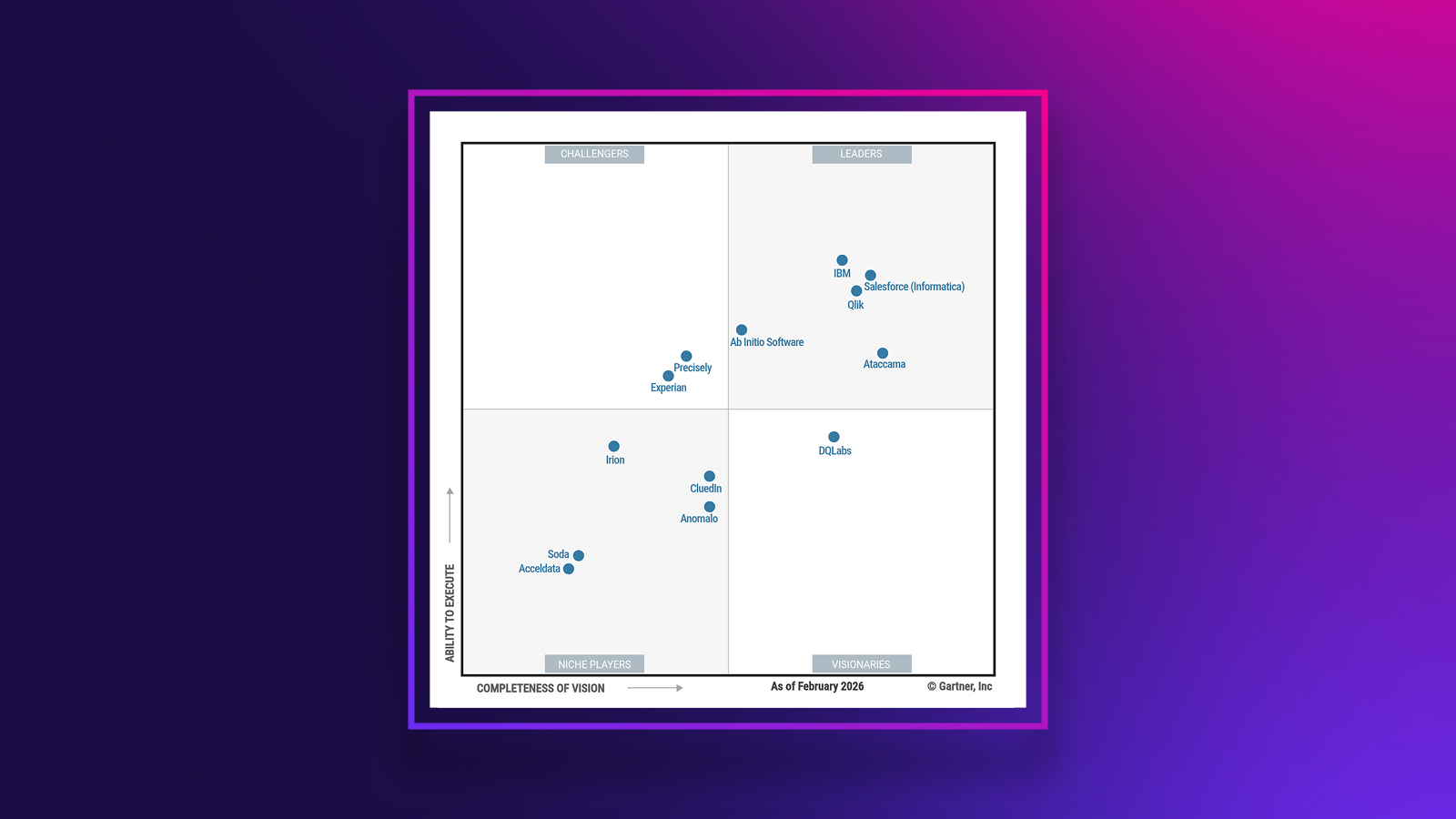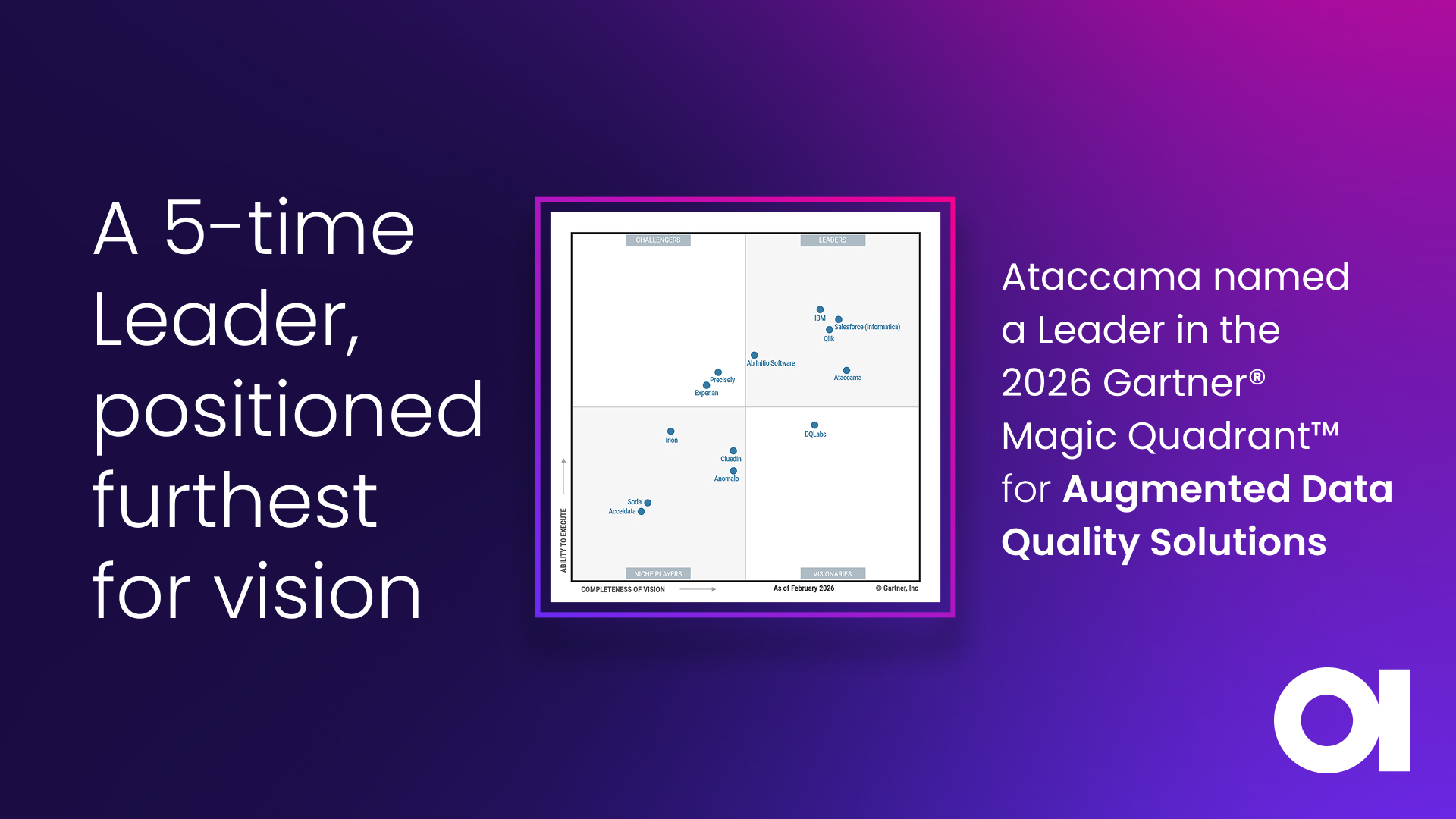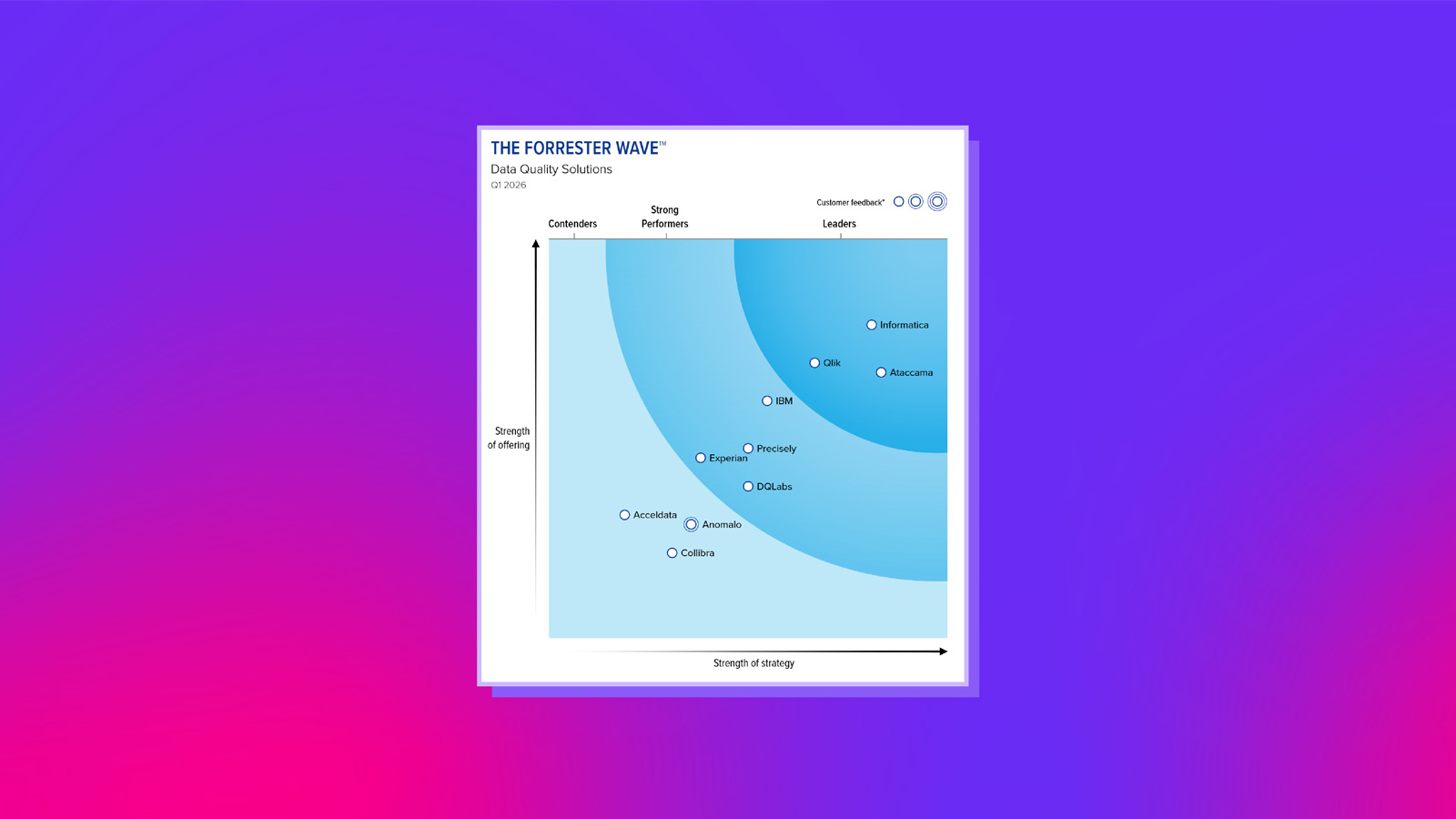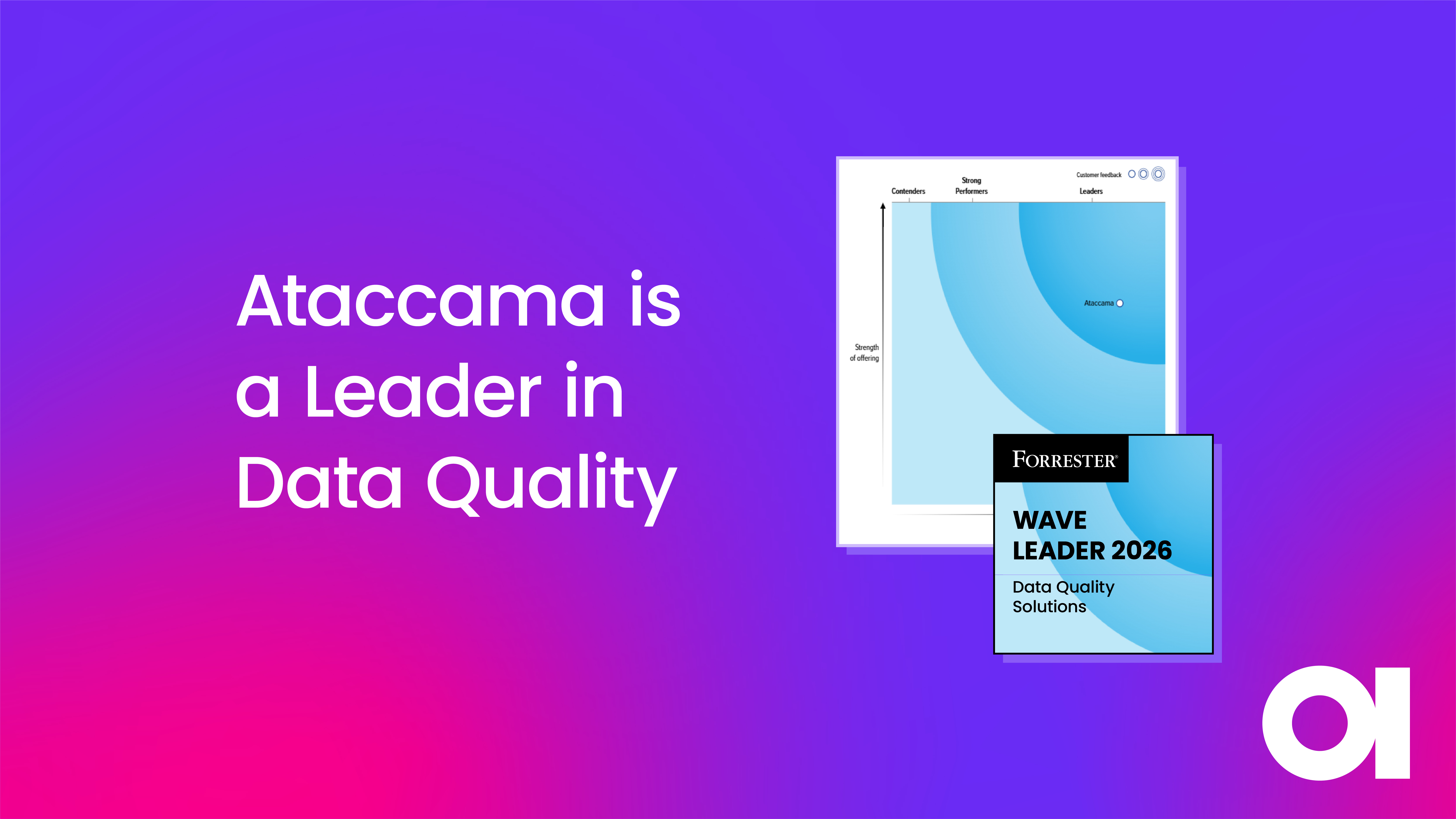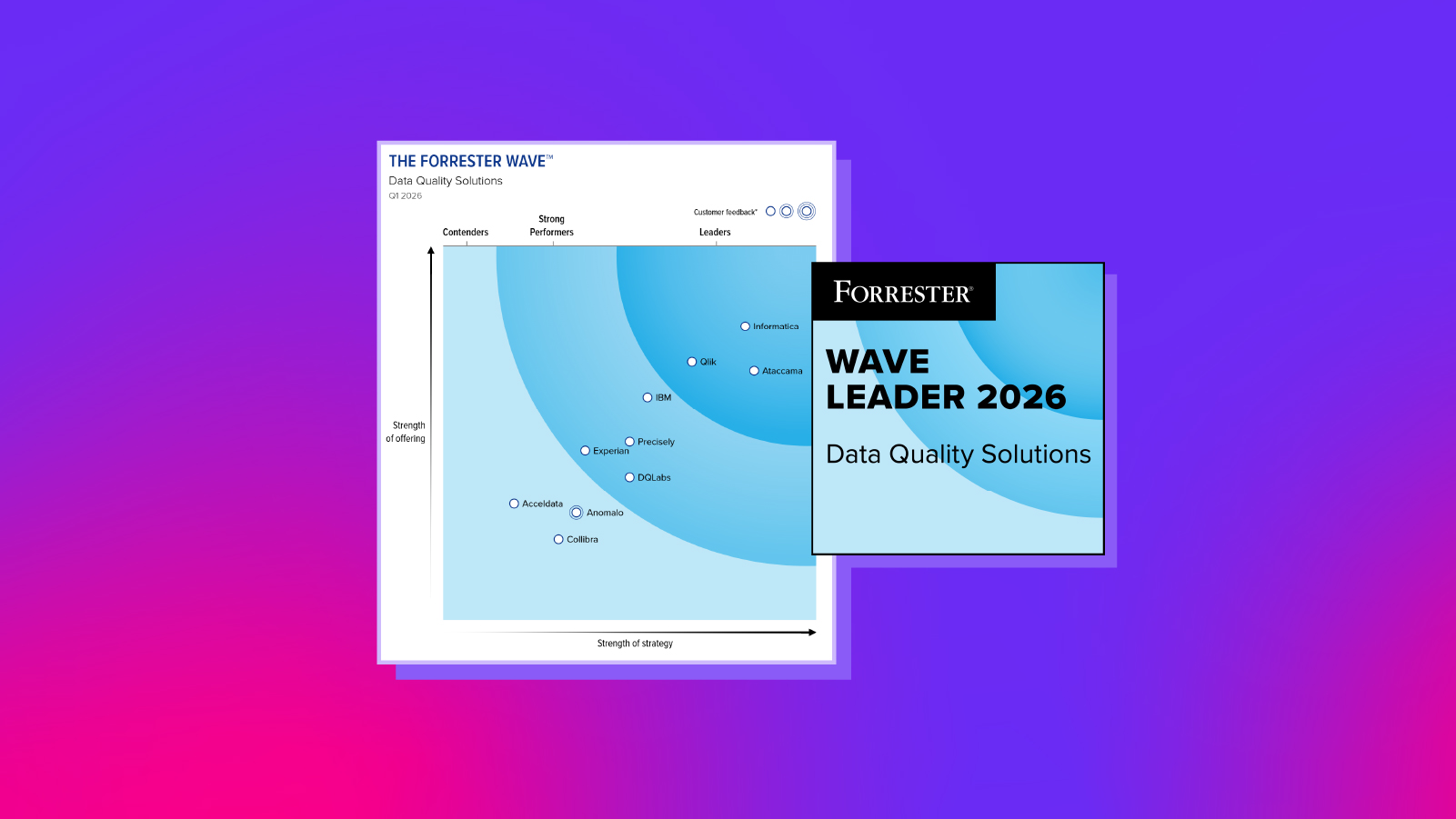Gartner Critical Capabilities vs. Magic Quadrant: Why you need both to evaluate data quality solutions
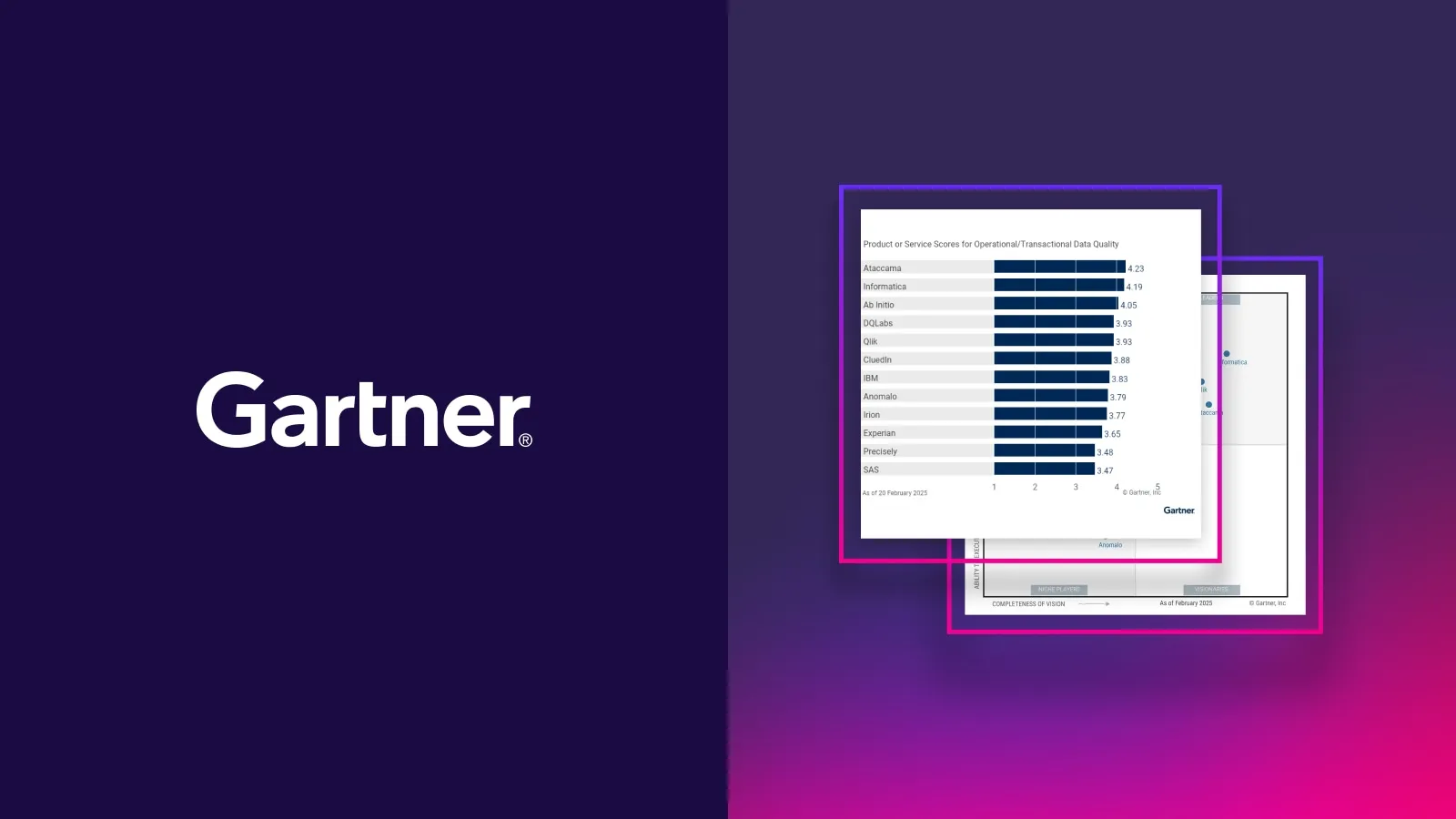
Two lenses are better than one
Every vendor in data quality claims to be a leader in the industry, which makes it frustrating to choose a vendor — let alone the right vendor for you — to provide the data-quality platform that you need to grow your business. What criteria matters? Can what they say be trusted? Is their product great, but maybe not great for your use-case?
Thankfully, third-party analysis helps businesses like yours wade through the claims and get the info you need to make the right decision.
For decades, Gartner’s Magic Quadrant (MQ) reports have been analyzing key competitors in different tech service spaces and evaluating them based on their mission and competency. Today, these MQ reports trace companies over time as they respond to the changing tech ecosystem, tracking whether or not data-quality platforms are adapting to the AI-driven times. Leaders in these MQ reports demonstrate a clear vision for the future and current product competency, helping potential clients to evaluate their viability to meet long-term partnership goals.
In addition, Gartner’s Critical Capabilities (CC) reports evaluate and rank core products from each company in different use-case scenarios, allowing purchasers to evaluate a company’s specific products in addition to their overall market fitness. These CC reports help purchasers to check the boxes and make sure a data-quality platform investment is going to solve the problems they actually have.
Paired together, these two reports help purchasers make the right decision for their use-case, lowering the risk of choosing a data-quality platform that doesn’t work or doesn’t fit your business.
The best news of all? Ataccama tops both charts.
What is the Gartner Magic Quadrant?
- Purpose: The Gartner Magic Quadrant is a wide-angle market view that sorts market competitors into four quadrants—Leaders, Challengers, Visionaries, and Niche Players.
- Axes: Companies are evaluated on their ability to execute (y) and completeness of vision (x).
- Why it matters: The Magic Quadrant report is a fast read for boards and executives, helping them to choose a data-quality partner with long-term viability and knowledge.
What is the Gartner Critical Capabilities report?
- Purpose: The Gartner Critical Capabilities report scores competing products against critical differentiators and use cases.
- Typical use cases: data profiling, monitoring, remediation, governance, and AI-assisted quality (weightings vary yearly)
- Format: 1–5 scoring, interactive filters, off-cycle updates for major product change
- Why it matters: The Critical Capabilities report helps purchasers determine if a high-ranking company in the Magic Quadrant report is the right data partner for their specific use-case.
Comparison: Critical Capabilities vs. Magic Quadrant
| Magic Quadrant | Critical Capabilities | |
|---|---|---|
| Primary question | Which vendors lead the market? | Which product best fits my use case? |
| Focus | Vendor strategy & market presence | Product functionality and performance |
| Audience | Executives, investors | Architects, practitioners |
| Output | Matrix with 4 quadrants | Weighted scores per use case |
| Update cadence | Annual | Annual + off-cycle |
| Ataccama 2026 result | Leader quadrant, 5th time | Ataccama 2026 result | Leader quadrant, 5th time | First in 3 of 5 use cases |
Why you need both reports in your evaluation
Alone, both the Magic Quadrant (MQ) and Critical Capabilities (CC) reports are valuable. Together, they act as a guidepost for sound purchase decision-making:
- Balance strategy with reality: MQ highlights overall company vision; CC proves execution in the workflows you’ll run tomorrow.
- Cross-validate shortlists: Start broad with MQ, then filter by CC scores to see who truly solves your specific data-quality gaps.
- Negotiate smarter: Use CC scoring differentials to press vendors on roadmap commitments backing their MQ positioning.
- Stay future-proof: Combine year-over-year MQ movement with CC score deltas to predict vendor momentum.
Ataccama’s Performance: Proven vision & execution
For the fifth time, Ataccama has ranked as a Leader in the Magic Quadrant, proving that Ataccama has a clear and adaptable vision for the future as well as capabilities for the current market and beyond.
In 2026, Ataccama also has the highest scores overall in 3 out of 5 product categories, Analytics & AI Readiness, Data Engineering and Data & Analytics Governance.
Ataccama is consistently ranked among the top two vendors across all use cases, underscoring platform breadth.
What this means for buyers: Ataccama is a single data-quality platform that matches a visionary roadmap with day-one functionality.
How to read the Gartner Critical Capabilities and Magic Quadrant reports for a data-quality RFP
If you are in the market to select a data-quality tool, here are five steps to help you understand a data-quality RFP and make an informed decision:
- Map your priority use cases to Gartner’s Critical Capabilities categories before opening the PDFs.
- Check vendor movement in Magic Quadrant over the last 3 years for stability.
- Weight Critical Capabilities scores by your own criticality matrix (e.g., profiling 40%, governance 30%, AI 30%).
- Scorecard vendors: Overlay Critical Capabilities results with pricing, services, and reference checks.
- Validate in demos: Ask vendors to replicate high-score scenarios live. You can request a demo with Ataccama in a few clicks.
FAQs
Does a leader in Magic Quadrant (MQ) always top the Critical Capabilities (CC)?
Not always, the MQ rewards strategy and some Leaders may trail on certain product capabilities. Likewise, some CC product standouts may lack an overall vision for future development.
What if my use case isn’t in the CC?
Weight adjacent scenarios or request Gartner’s interactive tool to recalculate.
How often are scores updated?
MQ is updated annual; CC receives annual updates, alongside interim updates for major product changes.
Why did Gartner rename the data-quality quadrant to “augmented”?
To stress AI’s role in modern data-quality tooling.
Where can I get the full reports?
Ataccama offers complimentary reprints of both 2026 reports in our resource library. You can access them here: 2026 Magic Quadrant Report and 2026 Critical Capabilities Report.
David Lazar
David is the Head of Digital Marketing at Ataccama, bringing eight years of experience in the data industry, including his time at Instarea, a data monetization company within the Adastra Group. He holds an MSc. from the University of Glasgow and is passionate about technology and helping businesses unlock the full potential of their data.
